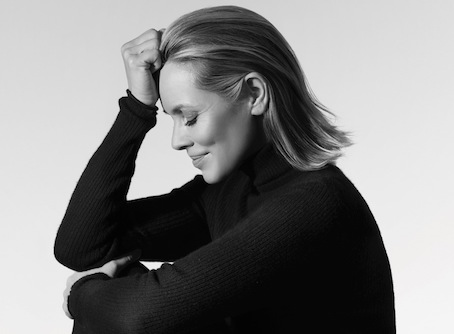“Whatever, love is love,” actress Maria Bello’s 12-year-old son Jackson said to her when she told him that she had fallen in love with a longtime family friend — and a woman.
In her Modern Love essay in 2013 and her book, Whatever … Love Is Love: Questioning The Labels We Give Ourselves, which came out this year, Bello explores the many labels we place upon ourselves and each other and what we consider a partner. 
Bello has a romantic, sexual relationship with Clare and a nonromantic, nonsexual relationship with Dan, the father of Jackson — and a lot of other important people in her life. She questions, why do we consider the person we have sex with as the most important partner in our life? And if we stop having sex with that person, but still remain married or in a relationship with him or her, does that change anything?
She writes:
It’s hard for me even to define the term “partner.” For five years I considered my partner to be a friend then in his 70s, John Calley, with whom I talked daily. He was the one who picked me up each time I had a breakdown about another failed romance. Because we were platonic, did that make him any less of a partner? … Can my primary partner be my sister or child or best friend, or does it have to be someone I am having sex with? I have two friends who are sisters who have lived together for 15 years and raised a daughter. Are they not partners because they don’t have sex? And many married couples I know haven’t had sex for years. Are they any less partners?
Those are interesting questions to ask, questions we probably don’t ask ourselves.
She, Jackson, Dan and Clare spend a lot of time together in what she calls their “modern family” — it certainly doesn’t look like a nuclear family, an image we still want to cling to even though those families barely exist nowadays. She has what The New I Do would call a parenting marriage (although they’re not technically married); Bello is connected to Dan because they are parents to Jackson, now 14, and that will never change — parenthood connects couples forever, whether they are married or not.
As any divorced co-parenting couple will tell you, it’s challenging. She says:
(I)t’s so complicated for a family to shift around. And you know, the truth is, life is fluid. Relationships are fluid. They are not static. And as much as we want to hold onto an idea of what they’re supposed to be, people grow and change and often in different directions. And then what do we do with that? Some people just throw out the love, and some people can make it work. … And I’m not saying it’s easy for us, you know? Some days, like, we can’t stand each other — all of us, and then some days, it’s different. But we communicate as much as we can. We talk about it. It’s certainly not easy, but the only other option is throwing out what we have. And what we have is something very special.
Her comment about throwing out the love reminds me of the conversation I had with Bay Area therapist Valerie Tate, whose uncoupling ceremony with her husband, Clark, before their son and loved ones was featured on ABC’s Nightline. Rather than throw out what they had — a rich history that once included romantic love for each other — they shifted the nature of the relationship and what they were fighting for; instead of struggling to maintain their intimate relationship, they just focus on raising their child together.
I look at how most of us end romantic relationships — with anger, hurt, accusations, resentments, vengeful thoughts and more days than not when people “can’t stand each other.” And that is often how we divorce as well, with kids stuck miserably in the middle. We know from studies that it’s conflict, not divorce per se that hurts children. What can we do that lessens that conflict (besides conscious uncoupling)?
Would it be better to not throw away what you already have with the parent of your child, accept that “people grow and change and often in different directions,” and challenge yourself to do things differently? Would you still value the father/mother of your child as a partner even if you were not having sex with him/her?
Want to have a parenting marriage? Learn how by ordering The New I Do on Amazon, and, while you’re at it, follow TNID on Twitter and Facebook.
















